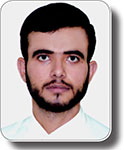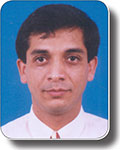Viability study of implementing smart/intelligent completion in commingled wells in an Australian offshore oil field
Mahdi Nadri Pari A and Akim Kabir ACurtin University
The APPEA Journal 49(1) 441-452 https://doi.org/10.1071/AJ08028
Published: 2009
Abstract
Simulating the automated action of smart well components represents a challenge in forecasting performance of such wells, and is fundamental to design decisions. Examples are wells equipped with inflow control valves (ICV), where zones have to be switched on, off or partially closed based on their performance relative to the rest of the wells/completions in the field, and where they share the same surface network and facilities constraints.
This paper presents a study that has been carried out to justify installation of a surface controlled ICV in a group of wells in an offshore Australian field with commingled production. The merit of surface-controlled ICV versus uncontrolled commingled production has been compared. A numerical reservoir simulator program has been used to model reservoir performance and production from individual zones. Also, the wells and production network have been simulated using well flow simulator and a production network simulation software respectively.
A simulation manager software is used to facilitate information exchange between the two simulation programs (production network and reservoir) and optimisation of the process. Proper control of ICVs is simulated based on reservoir and wellbore simulation data, which will result in maximum oil production of a field network system resulting in higher recovery. Also, we have done economic analysis for smart well completion implementation. The results of two aforementioned analyses (simulation study and economics) show that smart completion is viable for this field.

Mahdi Nadri Pari graduated with an MSc degree in drilling engineering from Petroleum University of Technology, Iran and MEng degree in well engineering from Curtin University of Technology, Australia in 2006. His research project focussed on viability study of implementing smart completion in commingled wells in an offshore Australian oil field. Following his graduation, he joined the expert division of Amin Management Consulting Group, Iran, where he is responsible for doing industrial projects. To date he has completed two projects in the fields of strategic management and technology management. Presently, he is involved in projects in the fields of smart well, real time optimisation and oil and gas strategy in Research Institute of Petroleum Industry (RIPI) of Iran. nadri911@yahoo.com |

Akim Kabir is a senior lecturer at the Department of Petroleum Engineering at Curtin University of Technology, Perth, where he teaches in the areas of production, completion and reservoir engineering. He has worked in the oil and gas industry for about 17 years before joining the academia in 2004. His research interests include near wellbore reservoir and inflow performance modelling of various completion types, completion optimisation, reservoir and production system integrated simulation, water shutoff, production optimisation and enhanced oil recovery. Previously he has worked with CSIRO Australia and ESSO Australia Ltd as a simulation scientist and reservoir engineer respectively. Prior to joining Curtin in 2004, he also worked for Petronas Carigali, Malaysia as a staff production reservoir engineer where he was involved in various aspects of reservoir and production engineering. He has authored several technical papers in various fields of petroleum engineering. He has served the Society of Petroleum Engineers (SPE) in various capacity ranging from program chair, section chair to AWT chair. Akim holds a BS in chemical engineering and an MS in petroleum engineering from Louisiana State University, Baton Rouge, Louisiana (1986). Member: SPE and Institute of Engineers Australia. A.Kabir@curtin.edu.au |


